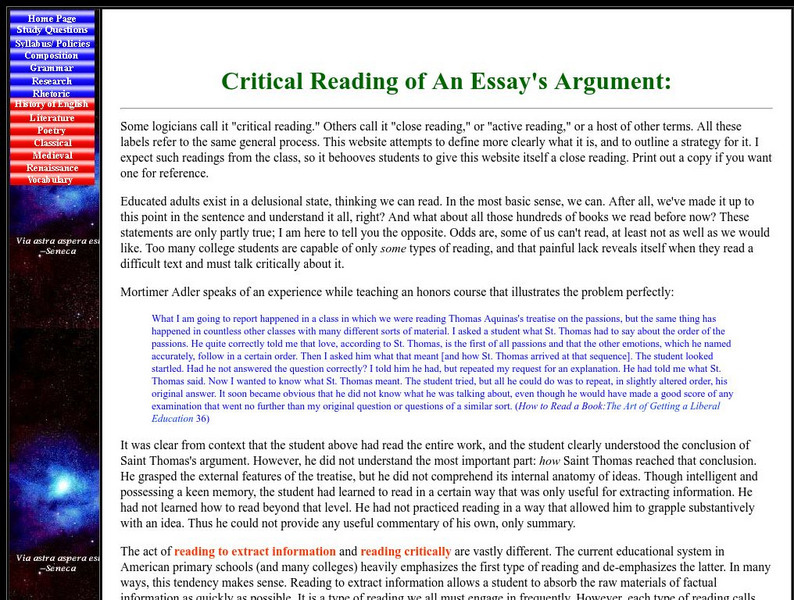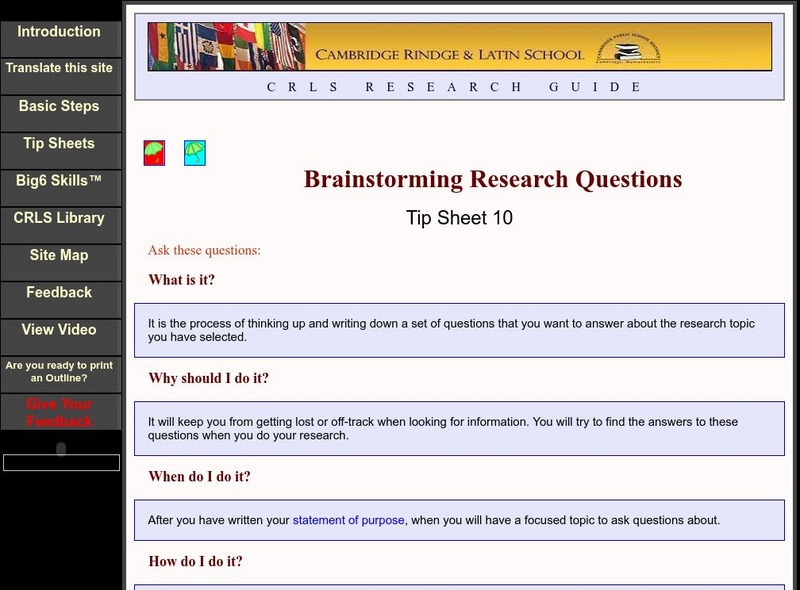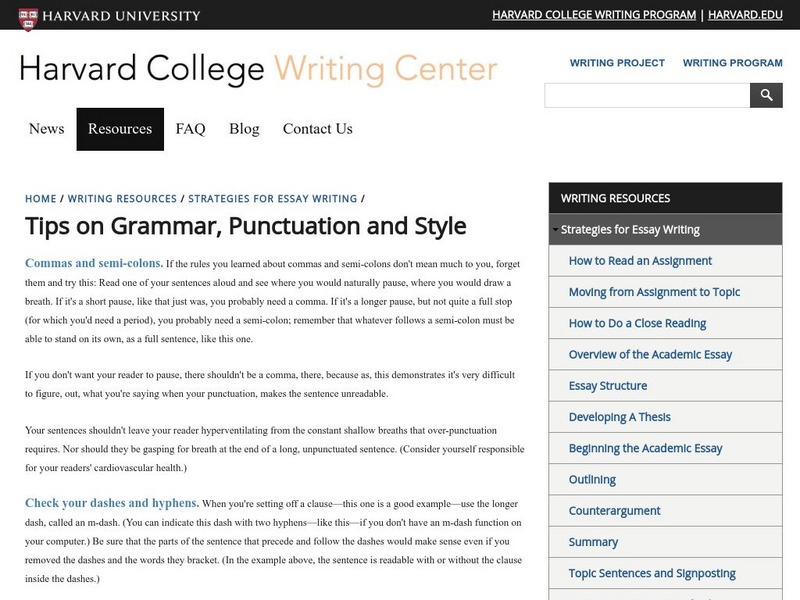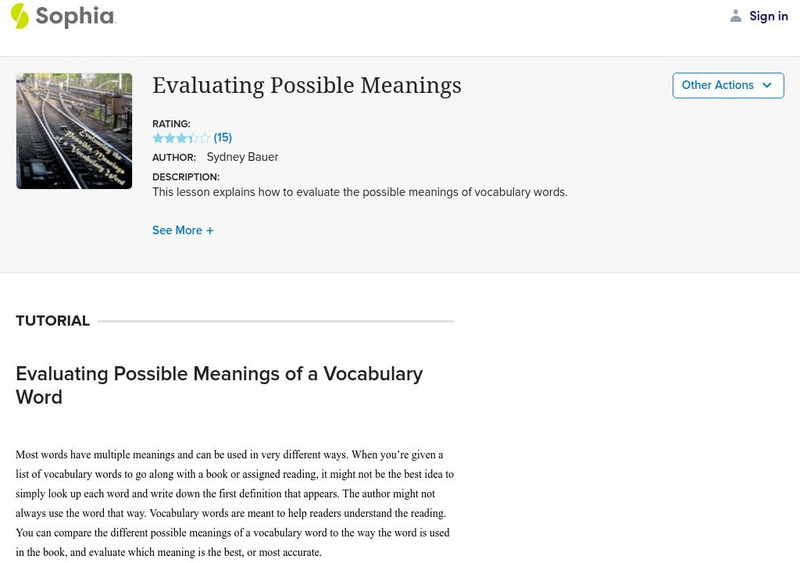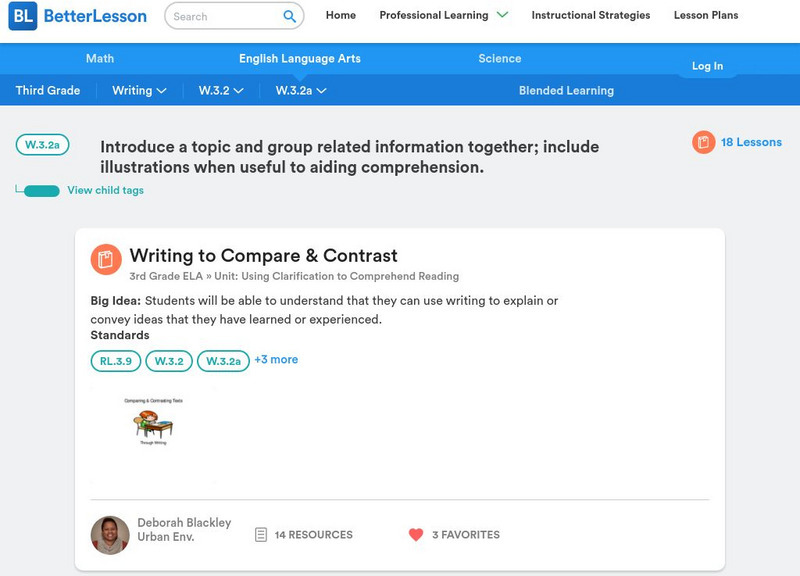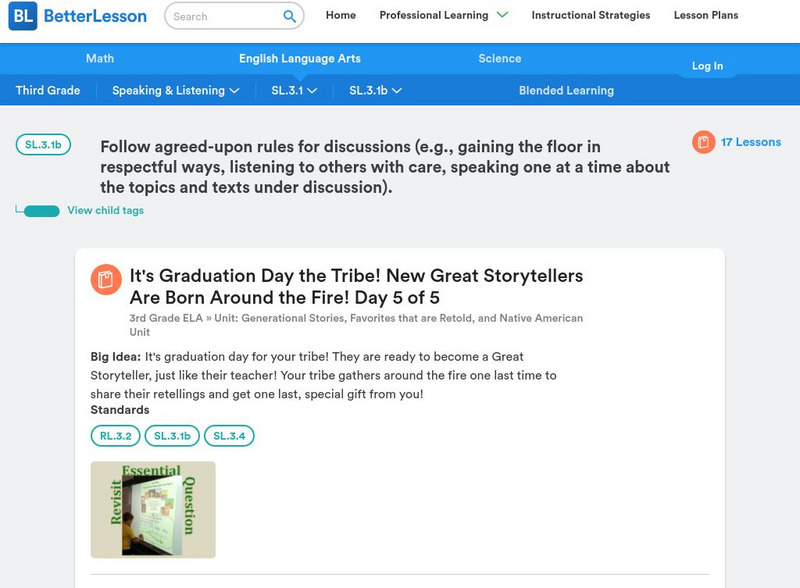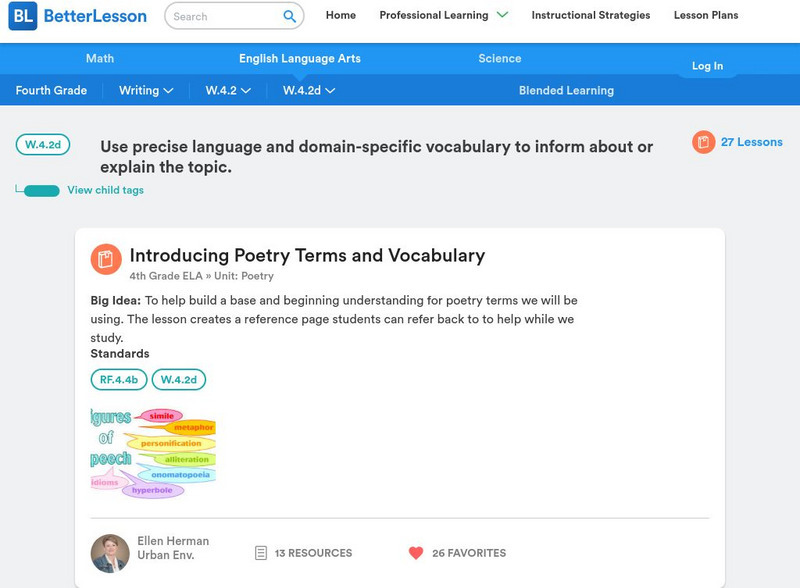Other
Curriculum Associates: Determining Theme or Central Idea [Pdf]
For this reading comprehension lesson unit, students are guided in learning how to find the main theme or idea of a text and understanding how details in the text convey that. Includes lots of exercises and examples, as well as...
Other
Carson Newman College: Critical Reading of an Essay's Argument
Extensive examination of what it means to critically read an argument. This process is sometimes called "critical reading," or "close reading," or "active reading." First the differences between reading to extract information and reading...
Cambridge Rindge & Latin School
Cambridge Rindge & Latin School: Brainstorming Research Questions
An excellent tip sheet for using brainstorming techniques for writing research papers. It also gives great examples of factual and interpretive questions. It also provides links to very helpful tip sheets with examples and a worksheet...
Harvard University
Harvard Writing Center: Tips on Grammar, Punctuation and Style
Rather than lists of rules, this site provides practical advice on the use of commas, semicolons, dashes, hyphens, abbreviations, acronyms, split infinitives, "this," "that," italics, and underlining. CCSS.ELA-Literacy.CCRA.L.2
Pennsylvania State University
Pennsylvania State University (Dr. Mc Clennen): How to Do a Close Reading
This guide is written for college students, but should be very useful for upper level high school students as well. The writer first describes fourteen steps to take in doing a close reading, then provides six pieces of advice on how to...
Sophia Learning
Sophia: Evaluating the Connotation
This lesson focuses on evaluating the connotation of a vocabulary word. It defines connotation and gives an example. It details three steps: read the word in context, determine the tone of the overall reading, and compare the tone with...
University of Missouri
University of Missouri: Clear Writing: Ten Principles of Clear Statement
This page features a list of ten principles that lead to writing clearly and concisely, such as avoiding unnecessary words, writing like you talk, writing to express and not to impress, and the like. It also discusses "fog indexes" to...
Other
How to Study: Building Vocabulary: Using Context Clues to Learn Word Meaning
This resource explains six ways authors use context clues that might help readers understand unfamiliar words. CCSS.ELA-Literacy.CCRA.L.4, 8.2.B
Sophia Learning
Sophia: Planning and Shaping Body Paragraphs
This lesson discusses how to effectively organize body paragraphs. This tutorial lesson shares a short slideshow with the lesson's content. CCSS.ELA-Literacy.WHST.6-8.2.b
McGraw Hill
Mc Graw Hill: How to Use Strategies to Teach Students to Access Complex Texts
In this short video, the strategies of summarizing, clarifying, and asking-answering questions are used. These instructional tools will help teachers show students how to access complex texts. [5:54] CCSS.ELA-Literacy.CCRA.R.10
Online Writing Lab at Purdue University
Purdue University Owl: Using Appropriate Language
Knowing the right language for your particular audience is a necessary skill for all writers. No one wants to offend their audience or appear as though they don't know their content. Learn these rules of thumb to become more familiar...
ReadWriteThink
Read Write Think: Oral Presentation Rubric [Pdf]
This reproducible resource provides an assessment rubric to be used with students' oral presentations. CCSS.ELA-Literacy.CCRA.SL.4
Sophia Learning
Sophia: Evaluating Possible Meanings
This lesson explains how to evaluate the possible meanings of vocabulary words. An audio lesson [3:07] and notes are included in this tutorial. CCSS.ELA-Literacy.CCRA.L.4
Curated OER
Mc Graw Hill: Compare Points of View Narrator
Read a passage from a story to determine who is the narrator and what is the narrator's point of view. An additional practice exercise is available. CCSS.ELA-Literacy.CCRA.R.6
Other
Alpha Dictionary: Most Often Misspelled Words in English
Listed alphabetically, these commonly misspelled words often find their way into our writing! Here are the correct spellings, with brief tips for remembering how to write these words correctly. In addition, use the links of the left to...
Annenberg Foundation
Annenberg Learner: Literature: Analyzing Theme
Article explains how to find the theme in a piece of literature by asking yourself a series of questions as you read. RL.9-10.1 Analyzing Theme. CCSS.ELA-Literacy.CCRA.R.2
Better Lesson
Better Lesson: rl.k.9
Written by Master Teachers, BetterLesson provides lesson plans for all core subjects. This site provides 15 lessons for RL.K.9: With prompting and support, compare and contrast the adventures and experiences of characters in familiar...
TES Global
Blendspace: rl.k.5 Recognize Common Types of Texts (e.g., Storybooks, Poems).
In this module, students will read two texts on the topic of pancakes and distinguish between the text that is a storybook and the text that is a poem.
Better Lesson
Better Lesson: Awe Inspiring, Extraordinary, Erudite Kids
Using complex language, including rich descriptors, is necessary for mastery of the CCSS Standards. This lesson is a great lesson in using adjectives to enrich speaking and writing. Included are a video demonstration and printable...
Better Lesson
Better Lesson: Butterfly Bush Visitors
In this instructional activity, the children learn about how critters depend on the butterfly bush and how the butterfly bush, in turn, depends on it. Common Core writing skills are integrated as they take it to the next step, and create...
Better Lesson
Better Lesson: W.3.2a: Introduce a Topic and Group Related Information
Links to 18 lessons and activities that build student skills in standard W.3.2a: Introduce a topic and group related information together; include illustrations when useful to aiding comprehension.
Better Lesson
Better Lesson: Sl.3.1b: Follow Agreed Upon Rules for Discussion
Links to 17 lessons and activities that build student skills in standard SL.3.1b: Follow agreed-upon rules for discussion (e.g., gaining the floor in respectful ways, listening to others with care, speaking one at a time about the topics...
Better Lesson
Better Lesson: W.4.2d: Use Precise Language and Vocabulary
Links to 27 lessons and activities that build student skills in standard W.4.2d: Use precise language and domain specific vocabulary to inform about or explain the topic.
Better Lesson
Better Lesson: W.4.2c: Link Ideas Within Categories of Information
Links to 4 lessons and activities that build student skills in standard W.4.2c: Link ideas within categories of information using words and phrases (e.g., example, also, because).
![Curriculum Associates: Determining Theme or Central Idea [Pdf] Lesson Plan Curriculum Associates: Determining Theme or Central Idea [Pdf] Lesson Plan](https://d15y2dacu3jp90.cloudfront.net/images/attachment_defaults/resource/large/FPO-knovation.png)
